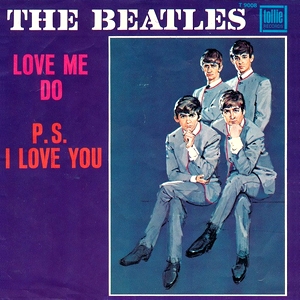“Love Me Do” Is Now In the Public Domain In Britain…

Some would call it a loophole, others the end of an already-generous protection period. But as of right now, the recording of the Beatles’ “Love Me Do” has fallen into public domain in Britain, thanks to a release date of 1962. This also applies to the B-side, “P.S. I Love You”.
It’s simple math: both recordings are more than 50 years old, which means they are no longer protected by existing British copyright law (the underlying compositions, on the other hand, remain protected). Here’s a read of that law, according to the UK Intellectual Property Office.
“Currently, if a work is recorded then copyright in this sound recording lasts for 50 years from the end of the year in which it was made or, if published in this time, 50 years from the end of the year of publication.”
Technically, that puts the expiration at December 31st, 2012, with lots more coming December 31st, 2013. Indeed, “Love Me Do” merely represents the first of a long string of early classics from the Beatles, Stones, and a myriad of other revered groups.
So what happens next? Thankfully for the narrow group of stakeholders of those recordings, the European Union enacted a directive in September of 2011 calling for the extension of recordings to 70 years (it’s 95 years in the US). Now, the intra-EU bureaucracy is churning towards enactment, with individual countries like the UK approving and codifying the extension.
The question is whether European society actually benefits from this extension, or whether this is a complicated form of charity for record labels and a tiny number of older musicians. “The income from copyright remuneration is important for performers, as they often do not have other regular salaried income,” the EU rationalized after passing the initiative. Critics note that a large amount of the money will flow back to entrenched labels. The EU continues…
“The extended term will also benefit record producers who will generate additional revenue from the sale of records in shops and on the internet.”
Whether “Love Me Do” and similarly-situated songs get grandfathered into that extension is more than academic. But that’s the thing about loopholes: right now, companies well-tuned to releasing out-of-copyright masters are already pouncing on this juicy opportunity. CMU has found at least two labels: Digital Remasterings and Pristine Classical, both of whom are simply following the letter of the law.
But in case of Pristine, this is a move driven more by protest than profit: the company feels that drawn-out recording protections are hurting their ability to re-release dusty symphonic performances, and harming broader society as a result.
Source: Digital Music News


